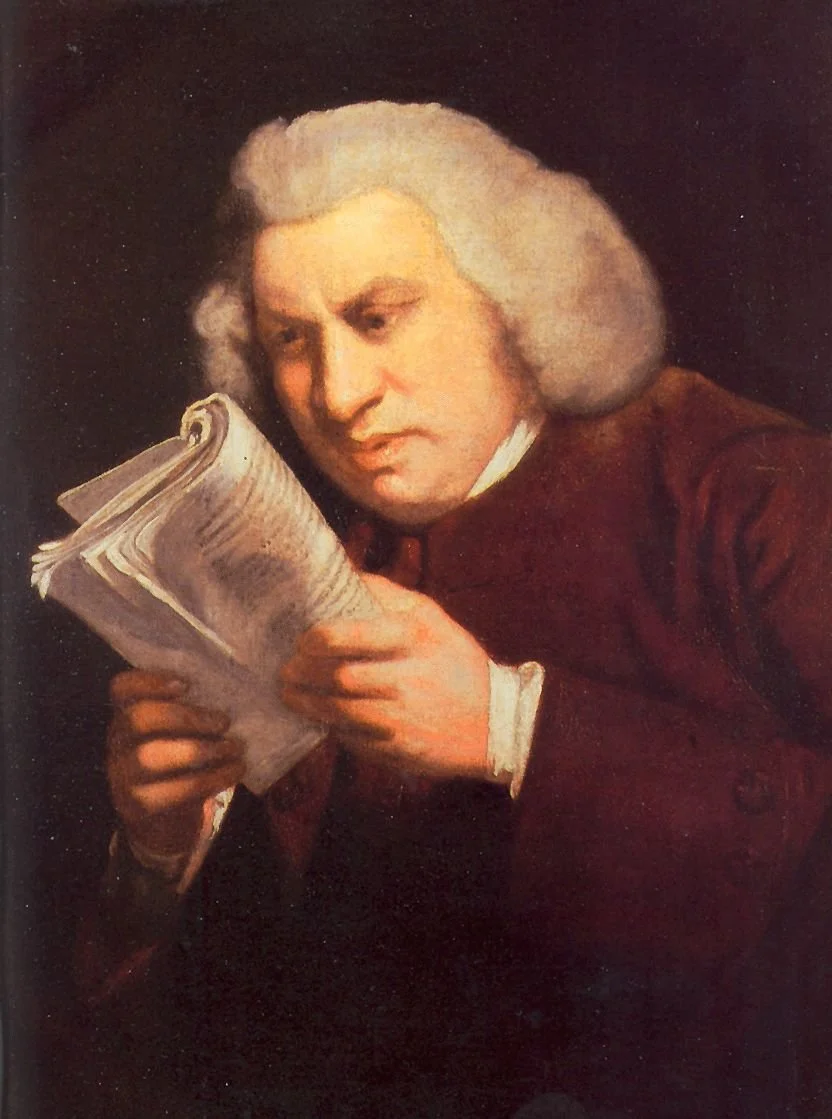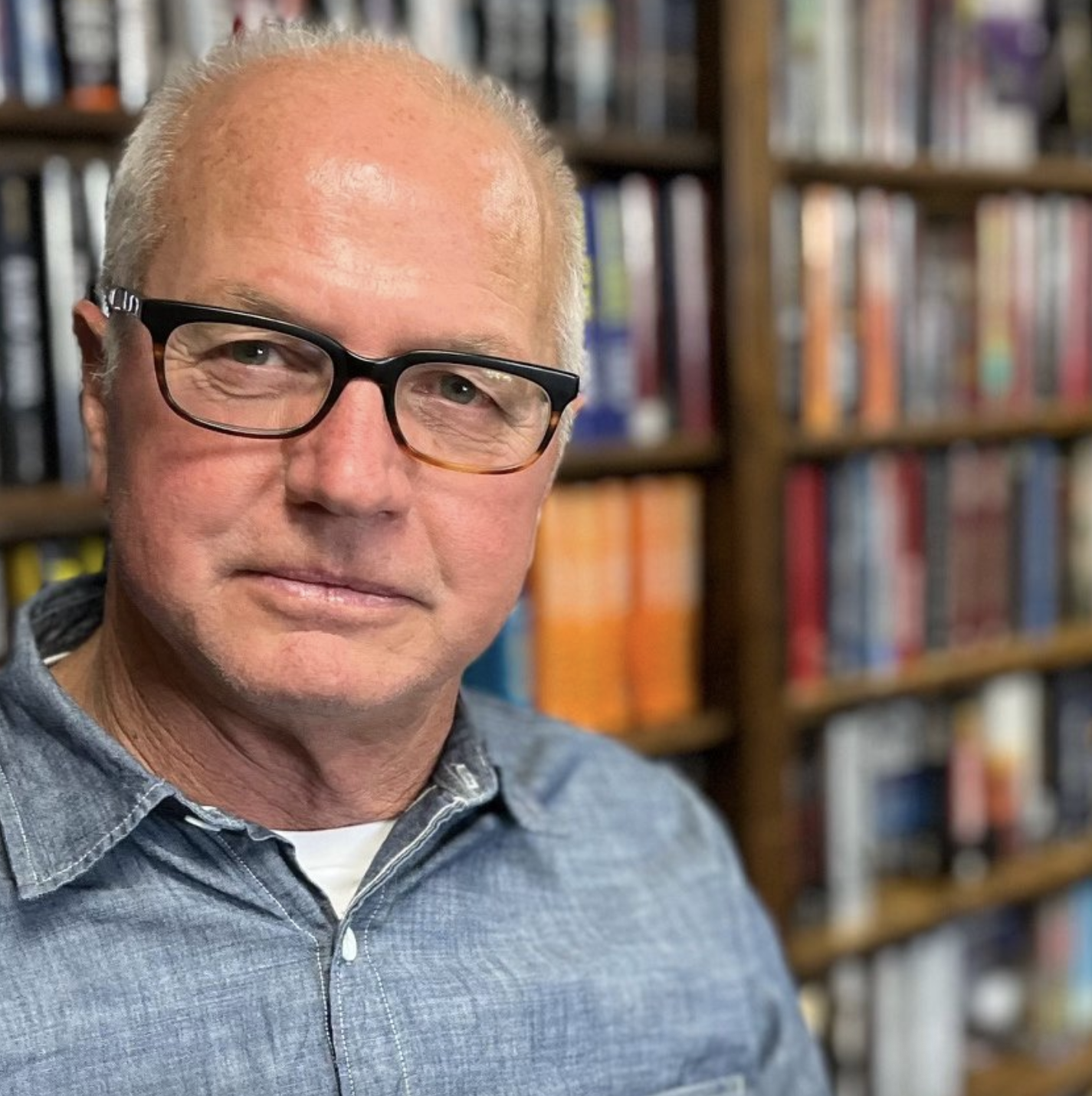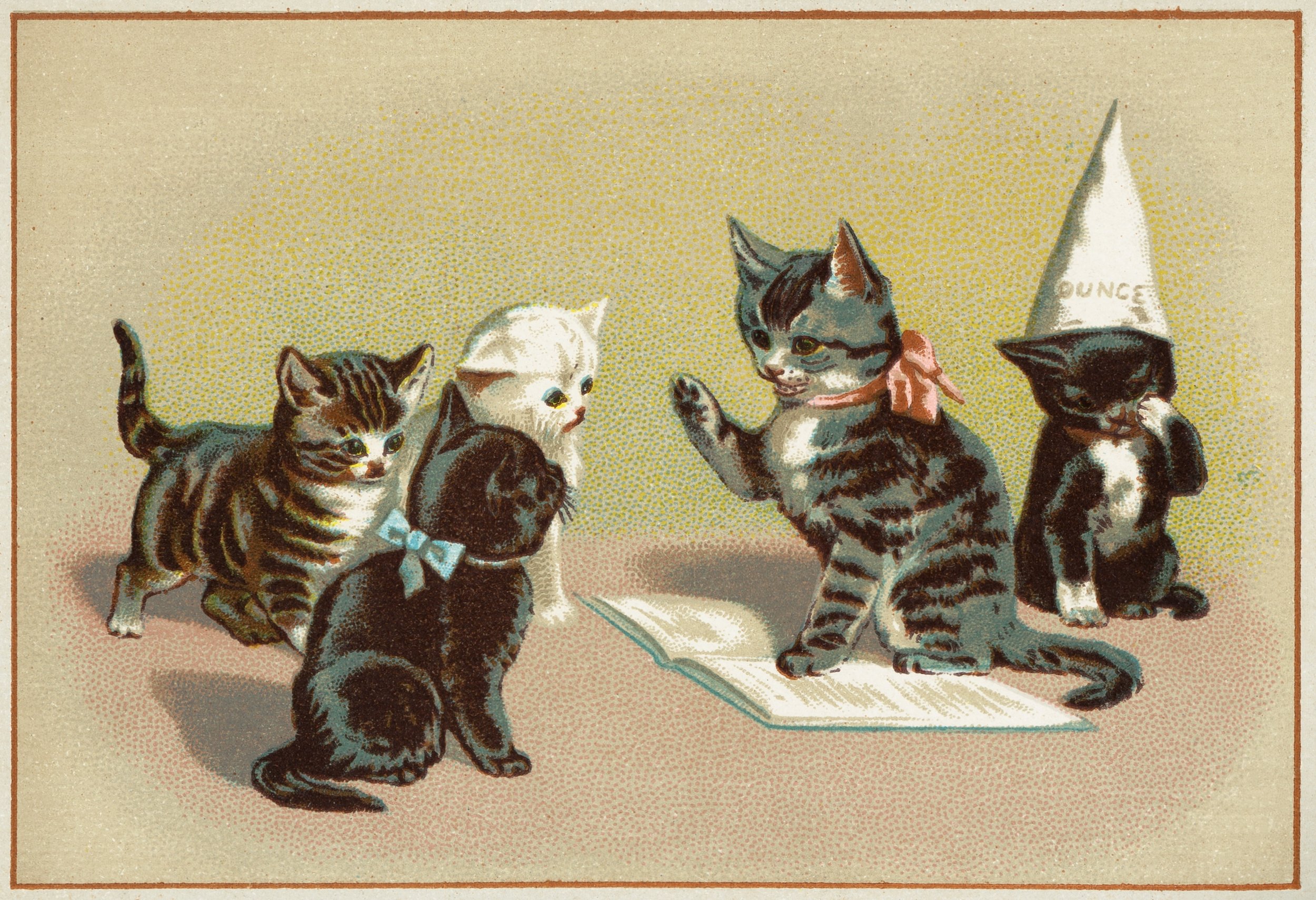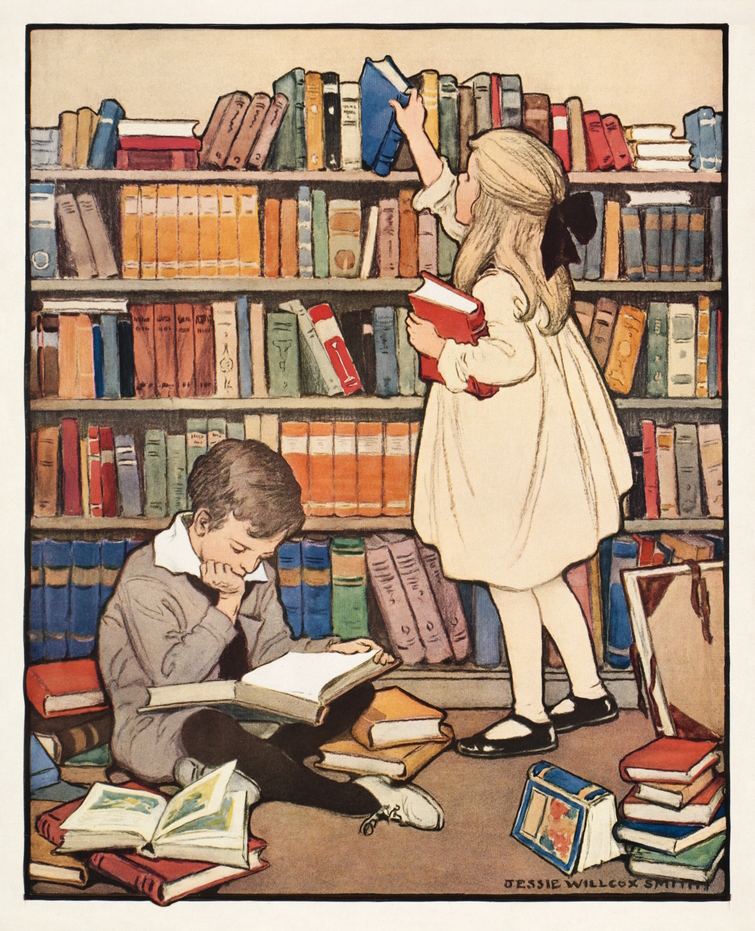Episode 17: Interpretation and Ecstasy
We have too many reviews and not enough interpretive criticism. At least, that’s what Nathan says, and it seems to hold water. In our second segment, we engage with Ivy Pochoda’s latest novel, Ecstasy, which itself engages with the classical play The Bacchae. A cult of drunken women who kill the men? Sure, sounds cool.
We have too many reviews and not enough interpretive criticism. At least, that’s what Nathan says, and it seems to hold water. A true critique engages your intellect and raises questions, while a review just says whether you should watch that movie/read that book/listen to that podcast.
In our second segment, we engage with Ivy Pochoda’s latest novel, Ecstasy, which itself engages with the classical play The Bacchae. We’re not saying a cult of drunken women who kill the men would solve all our problems, but maybe it’s a start.
Ecstasy by Ivy Pochoda is available now
Works cited this episode:
I Know What You Did Last Summer, dir. Jim Gillespie
Return of the Jedi, dir. Richard Marquand
The Empire Strikes Back, dir. Irvin KershnerFargo, dir. Joel Cohen
Siskel & Ebert
“Fargo Forum: Minnesota, Masculinity, Mike Yanagita, and more,” Noel Murray, Keith Phipps, Nathan Rabin, Tasha Robinson, Matt Singer, Scott Tobias, The Dissolve
“Against Interpretation,” Susan Sontag
The Great Gatsby, F. Scott Fitzgerald
“In Defense of the Traditional Review,” Richard Brody, The New Yorker
Volcano, dir. Mick Jackson
“It Lavas L.A.,” Richard Corliss, TIME
Capital, Karl Mark
The Lord of the Rings, J.R.R. Tolkien
Wonder Valley, Ivy Pochoda
Sing Her Down, Ivy Pochoda
Pride and Prejudice, Jane Austen
The Bacchae, Euripides
Demon Copperhead, Barbara Kingsolver
David Copperfield, Charles Dickens
Lolita, Vladimir Nabokov
Liar Liar, dir. Tom Shadyac
30 Rock, created by Tina Fey
Episode 16: Literature for Aliens, and How to Be Perfect
Our hosts have ideas about what sort of books should have been included on the Voyager spacecraft, to support its heartwarming mission of spreading humanity to the stars. Would you have just sent the aliens your favorite book? Because maybe they don’t have the context to understand what a “Da Vinci Code” even is. And speaking of putting a lot of pressure on a book, TV creator Michael Schur’s How to Be Perfect put that pressure on itself. Philosophical ethics never sounded so good.
Our hosts have ideas about what sort of books should have been included on the Voyager spacecraft, to support its heartwarming mission of spreading humanity to the stars. Would you have just sent the aliens your favorite book? Because maybe they don’t have the context to understand what a “Da Vinci Code” even is. And speaking of putting a lot of pressure on a book, TV creator Michael Schur’s How to Be Perfect put that pressure on itself. Philosophical ethics never sounded so good.
How to Be Perfect by Michael Schur
Works cited this episode:
The Tragedy of Hamlet, Prince of Denmark, William Shakespeare
Bridgerton series, Julia Quinn
Fight Club, Chuck Palahniuk
Twilight, Stephenie Meyer
The Lord of the Rings, J.R.R. Tolkien
The Shawshank Redemption, Frank Darabont
To Kill a Mockingbird, Harper Lee
The Ride of the Valkyries, Richard Wagner
“Queen of the Night,” The Magic Flute, Wolfgang Amadeus Mozart
“Johnny B. Goode,” Chuck Berry
The Three-Body Problem, CIxin Liu
Contact, Carl Sagan
The Art of War, Sun Tzu
Silo, created by Graham Yost
Fox in Socks, Dr. Seuss
The Cat in the Hat, Dr. Seuss
Green Eggs and Ham, Dr. Seuss
Galaxy Quest, dir. Dean Parisot
The Tragedy of King Lear, William Shakespeare
The Office, developed by Greg Daniels
Parks and Recreation, created by Greg Daniels and Michael Schur
The Good Place, created by Michael Schur
The Apology of Socrates, Plato
Bill and Ted’s Excellent Adventure, dir. Stephen Herek
The Simpsons and Philosophy, William Irwin, Mark T. Conrad, Aeon J. Skoble, editors
Harry Potter and Philosophy: If Aristotle Ran Hogwarts, David Baggett, Shawn E. Klein, William Irwin, editors
The Legend of Zelda and Philosophy, Luke Cuddy, editor
Jimmy Buffett and Philosophy, Erin McKenna, Scott L. Pratt, editors
Radiohead and Philosophy, Brandon W. Forbes, George A. Reisch, editors
Chicken Soup for the Soul, Jack Canfield and Mark Victor Hansen
Zen and the Art of Motorcycle Maintenance, Robert Pirsig
Episode 15: Chris Hauty, author of Dead Ringer, and Books as (bad) gifts
Author and screenwriter Chris Hauty joined us to discuss his latest thriller, Dead Ringer, about a JFK assassination conspiracy—and if you think you’ve heard it all on this topic, we assure you this novel will take you somewhere unexpected. Then, we ponder why books are such popular gifts when they’re actually rather fraught as an item to give someone else.
Author and screenwriter Chris Hauty joined us to discuss his latest thriller, Dead Ringer, about a JFK assassination conspiracy—and if you think you’ve heard it all on this topic, we assure you this novel will take you somewhere unexpected. Chris shared his surprising influences and offered insights about where Hollywood and book publishing overlap (and where they don’t).
Then, we ponder why books are such popular gifts when they’re actually rather fraught as an item to give someone else. What if they don’t like it? Or you’re trying too hard? Or … what if we’re overthinking this topic. Hmm.
Dead Ringer by Chris Hauty is out now.
Works cited this episode:
Crossroads, Jonathan Franzen
Notes of a Dirty Old Man, Charles Bukowski
Once Upon a Time in Hollywood, dir. Quentin Tarantino
Sniper: Ultimate Kill, dir. Claudio Fäh
Three Days of the Condor, dir. Sydney Pollack
Winter’s Bone, dir. Debra Granik
Winter’s Bone, Daniel Woodrell
The Da Vinci Code, Dan Brown
The Gift, Lewis Hyde
“The Gift of the Magi,” O Henry
Profiles in Courage, John F. Kennedy
Kon-Tiki, Thor Heyerdahl
Jurassic Park, Michael Crichton
Dog Man, Dav Pilkey
Our Share of Night, Mariana Enriquez
Sister Sinner: The Miraculous Life and Mysterious Disappearance of Aimee Semple McPherson, Claire Hoffman
They Flew: A History of the Impossible, Carlos Eire
Why? The Purpose of the Universe, Philip Goff
The Nickel Boys, Colson Whitehead
“Don’t Buy Me Books,” Katherine Marciniak, Bookriot
Bonus Episode: We Hate ‘Best Books’ Lists. Plus: Our 2025 ‘Best Books’ List!
All those “best books of the year” lists are bogus marketing material that flatten the distinct reading experience that an individual brings to a book they interact with. We tore apart the very concept of those lists in this episode. Then we shared our own Best Books list! Hypocrisy, or the nuanced ability to delicately balance competing perspectives? Eh.
All those “best books of the year” lists are bogus marketing material that flatten the distinct reading experience that an individual brings to a book they interact with. We tore apart the very concept of those lists in this episode. Then we shared our own Best Books list! Hypocrisy, or the nuanced ability to delicately balance competing perspectives? Eh.
Also, what is Author X up to with that crummy novel they released this year? Blind and not-so-blind items on the year’s worst books.
Works cited this episode:
NPR’s Books We Love
New York Times 100 Notable Books of 2025
Sunshine on the Reaping, Suzanne Collins
Audition, Katie Mitamura
Spent, Alison Bechdel
“In Defense of the Traditional Review,” Richard Brody, The New Yorker
Luminous, Silvia Park
Audition, Pip Adam
Terrestrial History, Joe Mungo Reed
What We Can Know, Ian McEwan
The Three-Body Problem, Cixin Liu
Shadow Ticket, Thomas Pynchon
Of Monsters and Mainframes, Barbara Truelove
The Merge, Grace Walker
Severance, created by Dan Erickson
Severance, Ling Ma
The Unveiling, Quan Barry
Will There Ever Be Another You, Patricia Lockwood
Bind Me Tighter Still, Lara Ehrlich
Old Soul, Susan Barker
Metallic Realms, Lincoln Michel
Pale Fire, Vladimir Nabokov
Alchemised, SenLinYu
Episode 13: Short Stories We Love, Part 2
We bring you more Short Stories We Love, the results of Nathan scouring the literary magazine world to find writers who deserve a closer look. In this episode, Joey Hedger brings us a tale of cancer and terrible liqueur; Glenn Clifton joins from Canada with a story of viral infamy and relationships; and Patricia Q. Bidar shares an ode to her hometown that also features a massive explosion.
We’re back with more Short Stories We Love, after Nathan scoured the literary mags to find writers who deserve a closer look. Short stories aren’t just for The New Yorker! In this episode, Joey Hedger brings us a tale of cancer and terrible liqueur; Glenn Clifton joins from Canada with a story of viral infamy and relationships; and Patricia Q. Bidar shares an ode to her hometown featuring a massive explosion.
“Her Jesus Year” by Joey Hedger is in HAD
“What You Are Looking For Is What Is Looking” by Glenn Clifton is in The Ex-Puritan
“Port Town” by Patricia Q. Bidar is in Waxwing
Works cited this episode:
No One is Talking About This, Patricia Lockwood
Deliver Thy Pigs, Joey Hedger
“Bottom’s Dream,” Glenn Clifton
“Finding the Form,” Glenn Clifton
“Al Roosten,” George Saunders
The Circle, Dave Eggers
Spaceballs, dir. Mel Brooks
The Jetsons, Hanna-Barbera
So You’ve Been Publicly Shamed, Jon Ronson
Baywatch, created by Michael Berk, Douglas Schwartz, and Gregory J. Bonann
“T Rex,” Patricia Q. Bidar
Episode 12: Amber Sparks and We Love You, Bunny
We had a great time welcoming writer Amber Sparks to the show and discussing her new novel Happy People Don’t Live Here, which features a girl detective, abusive men, ghosts, a mermaid, and what it means to keep your love for someone alive long after they — or you — are gone. Then, we do a deep dive on We Love You, Bunny, this year’s follow-up to Mona Awad’s cult hit novel Bunny.
We had a great time welcoming writer Amber Sparks to the show and discussing her new novel Happy People Don’t Live Here, which features a girl detective, abusive men, ghosts, a mermaid, and what it means to keep your love for someone alive long after they — or you — are gone. Amber is conflicted about the idea of Virginia Woolf using social media and, like several guests before her, stands up for the unjustly maligned second person POV.
Then, we do a deep dive on We Love You, Bunny, this year’s follow-up to Mona Awad’s cult hit novel Bunny. We are unanimous in our belief that it is both sequel and prequel, which is both interesting and problematic.
Amber Sparks' books can be found on her website, she can be followed on BlueSky, and her story “Your Life in Parties” is in the Substack literary journal Short Story Long.
Bunny fan art referenced in the episode by @sarahmirisolaart, Footsy, and wrengade.
Works cited this episode:
Alice’s Aventures in Wonderland, Lewis Carroll
House of Leaves, Mark Z. Danielewski
And I Do Not Forgive You, Amber Sparks
Self-Help, Lorrie Moore
The Secret History, Donna Tartt
The Theory of Everything, dir. James Marsh
Dead Poets Society, dir. Peter Weir
Babel, R.F. Kuang
Katabasis, R.F. Kuang
Bunny, Mona Awad
Heathers, dir. Michael Lehmann
Mean Girls, dir. Mark Waters
The Breakfast Club, dir. John Hughes
The Craft, dir. Andrew Fleming
Blob, Maggie Su
A Game of Thrones, George R.R. Martin
The Lost World, Michael Crichton
The President is Missing, Bill Clinton and James Patterson
The Hardy Boys series, Franklin W. Dixon/The Stratemeyer Syndicate
Episode 11: Jason Diamond and Book Blurbs
We sat down with Jason Diamond, bookish man about town and author of Kaplan’s Plot, a multigenerational Jewish gangster saga in bookstores now. He made a strong case for Chicago as a literary city and for not forgetting the immigrant experience in your ancestry.
Then, we pull back the curtain on back-of-the-book blurbs and other publicity tactics.
“Riveting!” — Stephen King
We sat down with Jason Diamond, bookish man about town and author of the multigenerational Jewish gangster saga Kaplan’s Plot. He made a strong case for Chicago as a literary city and for not forgetting the immigrant experience in your ancestry.
Then, we pull back the curtain on back-of-the-book blurbs and other publicity tactics.
“Riveting!” — Stephen King
Kaplan’s Plot is available now.
Works Cited
The Adventures of Augie March, Saul Bellow
Humboldt’s Gift, Saul Bellow
The Middlesteins, Jami Attenberg
The Lazarus Project, Aleksandar Hemon
The House on Mango Street, Sandra Cisneros
Native Son, Richard Wright
The Big Sleep, Raymond Chandler
The Bear, created by Christopher Storer
Chicago Fire, created by Derek Haas and Michael Brandt
The Man with the Golden Arm, Nelson Algren
See Friendship, Jeremy Gordon
The Godfather, Part II, dir. Francis Ford Coppola
The Castle, Franz Kafka
The Trial, Franz Kafka
It’s Always Sunny in Philadelphia, created by Rob McElhenney
We Love You Bunny, Mona Awad
The Footprints of God, Greg Iles
Jonathan Strange & Mr Norrell, Susanna Clarke
Merriam-Webster’s Collegiate Dictionary, Tenth Edition
Episode 10: Spooky Season with Kyle Winkler and Faust
We’re feeling spooky with horror author Kyle Winkler, back to discuss his latest novel, the creepy and horrifying Enter the Peerless, which starts with a private investigator trying to figure out what happened to a bunch of people who went into an abandoned trailer and never came out. Always a thoughtful and fun guest, Kyle gives us some insight into his process for this novel while establishing a mind-meld with Nathan over possible Halloween costumes.
Plus, Mason overreacts to an upcoming novel being based on the Faust myth, and demands a moratorium on Faust retellings. Will the literary establishment take note?
We’re feeling spooky with horror author Kyle Winkler, back to discuss his latest novel, the creepy and horrifying Enter the Peerless, which starts with a private investigator trying to figure out what happened to a bunch of people who went into an abandoned trailer and never came out. Always a thoughtful and fun guest, Kyle gives us some insight into his process for this novel while establishing a mind-meld with Nathan over possible Halloween costumes.
Plus, Mason overreacts to an upcoming novel being based on the Faust myth, and demands a moratorium on Faust retellings. Will the literary establishment take note?
Enter the Peerless by Kyle Winkler is out now.
Works Cited this episode:
Moby-Dick, Herman Melville
Treasure Island, Robert Louis Stevenson
Pride and Prejudice, Jane Austen
Women in Love, D.H. Lawrence
Middlemarch, George Eliot
“The Raven,” Edgar Allan Poe
The Return of the Native, Thomas Hardy
The Mayor of Casterbridge, Thomas Hardy
Far from the Madding Crowd, Thomas Hardy
Jude the Obscure, Thomas Hardy
Love in the Time of Cholera, Gabriel Garcia Marquez
Jack Reacher books, Lee Child
Being John Malkovich, dir. Spike Jonze
Suttree, Cormac McCarthy
The Road, Cormac McCarthy
The Grapes of Wrath, John Steinbeck
The Game, dir. David Fincher
The School of Night, Karl Ove Knausgaard
The Tragical History of the Life and Death of Doctor Faustus, Christopher Marlowe
Faust, Charles Gounod
The Devil’s Advocate, dir. Taylor Hackford
Devil’s Contract: The History of the Faustian Bargain, Ed Simon
The Spanish Tragedy, Thomas Kyd
Dark Renaissance, Stephen Greenblatt
The Winter of our Discontent, John Steinbeck
Ulysses, James Joyce
The French Lieutenant’s Woman, John Fowles
Paradise Lost, John Milton
The Tragedy of Romeo and Juliet, William Shakespeare
Warm Bodies, dir. Jonathan Levine
Coriolanus, William Shakespeare
The Tragedy of Hamlet Prince of Denmark, William Shakespeare
Titanic, dir. James Cameron
Clueless, dir. Amy Heckerling
Hamlet 2, Andrew Fleming
The Epic of Gilgamesh
The Odyssey, Homer
Spawn, Todd McFarland
Episode 09: Short Stories We Love
The first in an occasional series focusing on short stories we found in various journals, and interviews with those authors. Short stories don't get much love outside of The New Yorker or MFA workshops, but they should! Many of them are incredible. Our guests include writers Billy Irving, Kelly Magee, and Kit McGuire.
The first in an occasional series focusing on short stories we found in various journals, and interviews with those authors. Short stories don't get much love outside of The New Yorker or MFA workshops, but they should. Many of them are incredible. Try one today!
Our guests include writers Billy Irving, Kelly Magee, and Kit McGuire.
“Little Arlo” by Billy Irving is in XRAY Literary Magazine
“Caring for your Local Woman” by Kelly Magee is in Waxwing Literary Journal
“Pink in the Morning” by Kit McGuire is in Olit
Works Cited this episode:
Alyoshenka legend
Nine Stories, J.D. Salinger
“The Sound of Thunder,” Ray Bradbury
“The Lady or the Tiger,” Frank R. Stockton
There is no Antimemetics Division, qntm
“The Neighborhood,” Kelly Magee
“There Must be Good Honest Sins,” Kit McGuire
Episode 08: Meta Stole Our Writing to Feed its AI
We knew Zuck was a fan of the podcast, but we didn’t know he would go so far as to dig up our old articles and use them, along with a million other books, to train Meta’s AI. Oh, you say he didn’t do it himself, and maybe it’s not stealing (legal opinions pending)? This may be true, or it may just be a topic we debate on this episode.
We knew Zuck was a fan of the podcast. We didn’t know he would go so far as to dig up our old articles and use them, along with a million other books, to train Meta’s AI. Oh, you say he didn’t do it himself, and maybe it’s not stealing (legal opinions pending)? This may be true, or it may just be a topic we debate on this episode. Plus: We review the novel Luminous, by Silvia Park, a touching story of humans seeking connection in a world where robots walk among us.
Luminous by Silvia Park is out now.
Works Cited this episode:
“The Unbelievable Scale of AI’s Pirated Books problem,” Alex Reisner, The Atlantic
Jurassic Park, dir. Steven Spielberg
“Everyone is Cheating Their way Through College,” James D. Walsh, New York Magazine
The Confessions, Paul Bradley Carr
Wall-E, dir. Andrew Stanton
The McSweeney’s Book of Politics and Musicals, ed. Christopher Monks
The Early Republic and Antebellum America: An Encyclopedia of Social, Political, Cultural, and Economic History, ed. Christopher G. Bates
The Jetsons, Hanna-Barbera
Blade Runner, dir. Ridley Scott
The Murderbot Diaries, Martha Wells
A.I. Artificial Intelligence, dir. Steven Spielberg
Blob, Maggie Su
Never Let Me Go, Kazuo Ishiguro
The Remains of the Day, Kazuo Ishiguro
The Conscious Mind: In Search of a Fundamental Theory, David Chalmers
You are Not a Gadget, Jaron Lanier
The Big Sleep, Raymond Chandler
Klara and the Sun, Kazuo Ishiguro
Gulliver’s Travels, Jonathan Swift
Star Wars, dir. George Lucas










